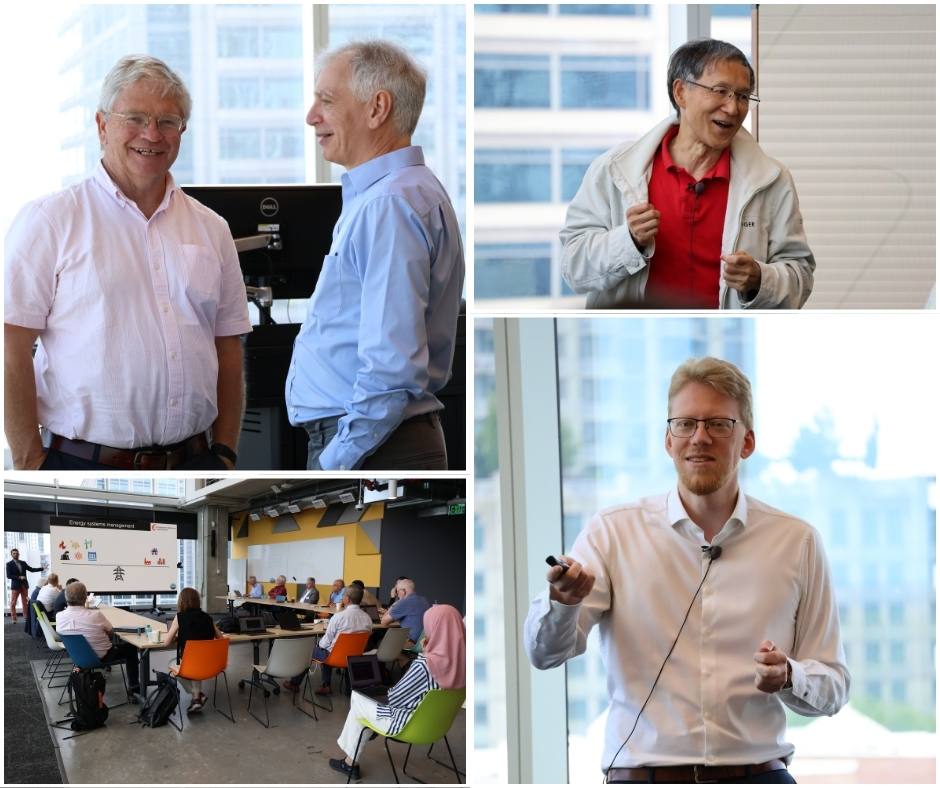The NSF AI4OPT Institute welcomed members of its External Advisory Board (EAB) for a full-day meeting at the Coda Building on Georgia Tech’s Midtown campus. With participants joining both in-person and virtually from North America, Europe, Asia, and Australia, the gathering offered a global perspective on the Institute’s evolving mission and impact.
Opening Remarks and NSF Guidance
The meeting opened with remarks from Kevin Dalmeijer, NSF AI4OPT Managing Director, followed by an introduction from the National Science Foundation (NSF), represented by Reha Uzsoy. Pascal Van Hentenryck, NSF AI4OPT Director, then provided a comprehensive overview of the Institute’s progress and vision.
In light of ongoing shifts in funding priorities and research expectations, the NSF emphasized the importance of demonstrating broad and measurable impact. Discussions throughout the day reflected this theme, with repeated calls for NSF AI4OPT to expand its definition of impact—encompassing foundational research, use-inspired applications, and workforce development.
Morning Research Sessions
The research program was presented in three parts. The morning sessions focused on learning-enabled optimization and optimization-inspired learning, with presentations by Bistra Dilkina (University of Southern California) and Van Hentenryck.
Midday Methodology and Ethics Discussions
Midday sessions explored applications of optimization for AI. Alper Atamtürk (UC Berkeley), Yao Xie (Georgia Tech), Justin Romberg (Georgia Tech), and Juba Ziani (Georgia Tech) discussed topics ranging from conformal prediction and decentralized learning to ethical AI frameworks. The lunch session paired board members with graduate students for informal discussions.
Afternoon Thrust Focus
In the afternoon, the focus shifted to NSF AI4OPT’s main thrusts. Mathieu Tanneau led a session on AI for energy systems, followed by updates on AI applications in precision agriculture and supply chains from teams led by Yongsheng Chen and Amira Hijazi, respectively.
Education and Industry Engagement
The final open session was devoted to education and industry engagement. Dalmeijer presented updates on AI4OPT’s education and workforce development initiatives, while Van Hentenryck outlined the Institute’s growing impact on industry partners through technology transfer and collaboration.
Strategic Dialogue and Closing Reflections
The EAB, chaired by Hugh Durrant-Whyte (University of Sydney), concluded the day with a closed-door session to draft recommendations and provide strategic guidance. “Where do we go from here?” became a central question, prompting reflections on how the Institute can maintain research excellence while deepening its societal relevance.
Looking Ahead
The AI4OPT Institute extends its gratitude to all EAB members for their commitment and insight. The board includes leading researchers from institutions such as the University of Wisconsin–Madison, Rutgers University, Caltech, Université de Montréal, and the French Electricity Transmission Network (RTE).
As AI4OPT continues to evolve, the EAB’s feedback will play a critical role in helping the Institute navigate a changing research landscape—and continue delivering impact at scale.

